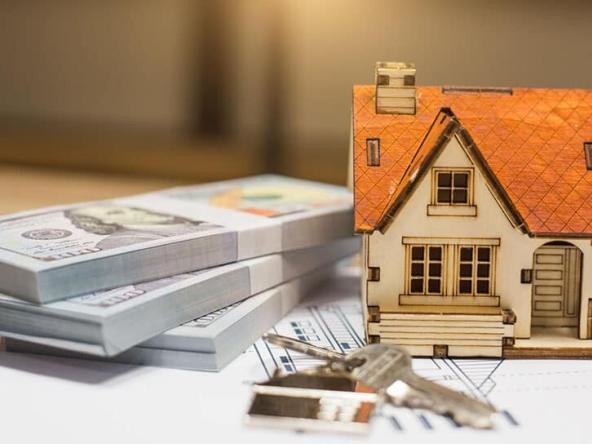Navigating the complex world of real estate through inflation can be mind-boggling. And while no one can estimate what our future will bring, lately, there’s been a lot of talk about inflation coming, and the economy taking a turn for the worst. Understandably, that’s got a lot of people out there wondering how that impacts their real estate prospects in the next, say, couple of years.
In an attempt to answer that question, we look at the basics of real estate inflation, at how inflation might impact one’s real estate assets, and what you can do to prepare yourself.
First things first, how does inflation affect real estate?
Inflation basically reflects the dollar’s buying power, which in this case, is decreasing as time goes by. So if the dollar can buy less in 2022 than it could in 2018, that means an item that would’ve been $100 in 2018 might now be $101.8 today (due to 1.8% inflation rates).
For real estate, inflation means the price of properties will rise, since a house that was worth $400k in 2018 would now be worth $407.2k, at a 1.8% inflation rate. Understandably, it can no longer be priced at just $400k, as that would be less than it’s worth.
That’s using the average 1.8% inflation rate over the past 10 years. However, the current inflation rate is not at a meager 1.8%, but has, in recent months, gone all the way up to 8.5%, eventually slowing down to 8.3%.
A quick math experiment will show us that the products discussed earlier, namely the $100 item, and the $400k home, would in 2022 be priced at $108.3, and $433.2k. Now, while those extra $8 aren’t bringing the point home, those extra $30k certainly should be.
Because of the rising buying prices, in an inflationary economy, more people are renting, rather than buying. This means that, for landlords, inflationary years can actually be really beneficial, as demand will skyrocket. However, bear in mind that this is also affected by where your property is situated. For instance, if you’re renting out vacation homes in areas that are propelled by tourism, inflation probably won’t be great news for you, since travel is one of the first expenses to get cut in an inflationary economy.
As a real estate investor, however, inflation gives rise to a bunch of challenges. For instance, because of the Euro’s decreasing buying power, banks will become more selective about offering loans, and offer fewer loans than in non-inflationary years (to ensure they don’t get shorted). During inflation, new real estate construction also takes a downturn, since construction material, workers, equipment, etc., also ends up costing more.
Should you invest in real estate, during inflation?
As we’ve just seen, investing in real estate has its pros and cons, during inflation. There are, certainly, considerable downsides to it, but if you invest wisely, real estate might turn out to be one of the best decisions of your life.
What are some smart real estate investments in an inflationary economy?
While no one can 100% guarantee any type of investment is wise, there are some real estate investments that are more prudent and that will probably offer more benefits than others, during inflation.
One thing you should be looking into is note investing. For those of you unfamiliar with the term, note investing is basically when you use your assets to purchase someone else’s debt, as well as the security instrument used to guarantee that debt. For example, in mortgage payments, people are taking out loans, using their home as collateral, to guarantee that they’ll pay back said debt.
Through note investing, you’re basically purchasing their debt, but also the home used to guarantee said debt (should payments cease). Because banks are struggling to stay afloat themselves during inflation, they will be offloading more note investing opportunities than normal, which will also result in lower prices. As such, note investing can be hugely advantageous, if you’ve got the means.
Another really smart real estate investment you can try during inflation are rental properties. As explained above, most people won’t have the means to buy real estate in inflation, and will, instead, be looking to rent, at least until things calm down. If you’ve got the means, purchasing a rental property can prove hugely advantageous for you, since these will be enjoying higher than regular demand, and also, higher returns. So not only will you be pretty certain of finding tenants, but you will also be able to hedge against inflation by charging higher monthly rent.
Bear in mind that rental properties come in all shapes and sizes: from residential to commercial spaces, and from single-unit to multi-unit.
How to invest in real estate wisely
So, the bottom line is, yes, you should invest in real estate, even during inflation, as this can open up new opportunities you wouldn’t have had in a normal market. However, as with any type of investment, it is important that you do your due research, to make sure the opportunities identified actually have promise.
Ask your realtor for advice, and only invest in properties and deals you’re certain of.





